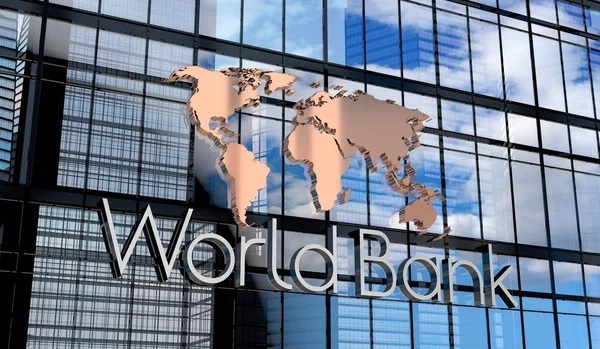By John Moses
Global economic growth is expected to decelerate significantly in 2025, with the World Bank projecting a modest expansion of just 2.3%, citing escalating trade disputes and prolonged policy uncertainty as major drags on recovery.
According to the latest Global Economic Prospects report released Tuesday, this revised forecast marks a downward revision of nearly half a percentage point compared to earlier estimates issued at the start of the year. The projected rate would represent the weakest non-recessionary global growth since the 2008 financial crisis.
The report noted that nearly 70% of economies — across all regions and income levels — have seen their growth expectations downgraded. While a full-scale global recession is not anticipated, the World Bank warned that growth levels for the first seven years of this decade are likely to be the lowest since the 1960s.
Indermit Gill, Chief Economist and Senior Vice-President for Development Economics at the World Bank Group, highlighted particularly grim prospects for lower-income nations.
“Outside of Asia, much of the developing world risks becoming a development-free zone,” said Gill. “This trend has been worsening for more than a decade.”
Growth in developing economies has fallen consistently — from 6% in the 2000s to below 4% in the 2020s — mirroring a broader decline in global trade volumes and investment. Meanwhile, sovereign debt levels have surged to unprecedented highs.
For 2025, the Bank forecasts that growth will slow in nearly 60% of developing nations, with an average rate of 3.8%. That’s more than a full percentage point below the average of the 2010s. Growth among low-income countries is also expected to decelerate to 5.3%, a reduction of 0.4 percentage points from earlier projections.
Inflation remains a concern, with global consumer prices expected to average 2.9% in 2025 — still above pre-pandemic benchmarks — due in part to tariff increases and tightening labour markets.
The World Bank also cautioned that sluggish growth could severely hamper efforts to reduce poverty and close income gaps between rich and poor countries. For developing nations, per capita income is projected to grow by only 2.9% in 2025, significantly below historic norms.
If growth continues at this pace, developing economies excluding China may require up to two decades to return to their pre-COVID trajectory, the report said.
Nonetheless, there is potential for a faster rebound. The World Bank estimated that reducing trade tensions — including halving current tariffs — could add 0.2 percentage points to global growth in both 2025 and 2026.
In light of rising protectionism, the institution urged emerging markets to diversify trade links, foster regional economic partnerships, and strengthen domestic fiscal resilience. It also called for international cooperation to support fragile states through multilateral aid and targeted economic relief.























